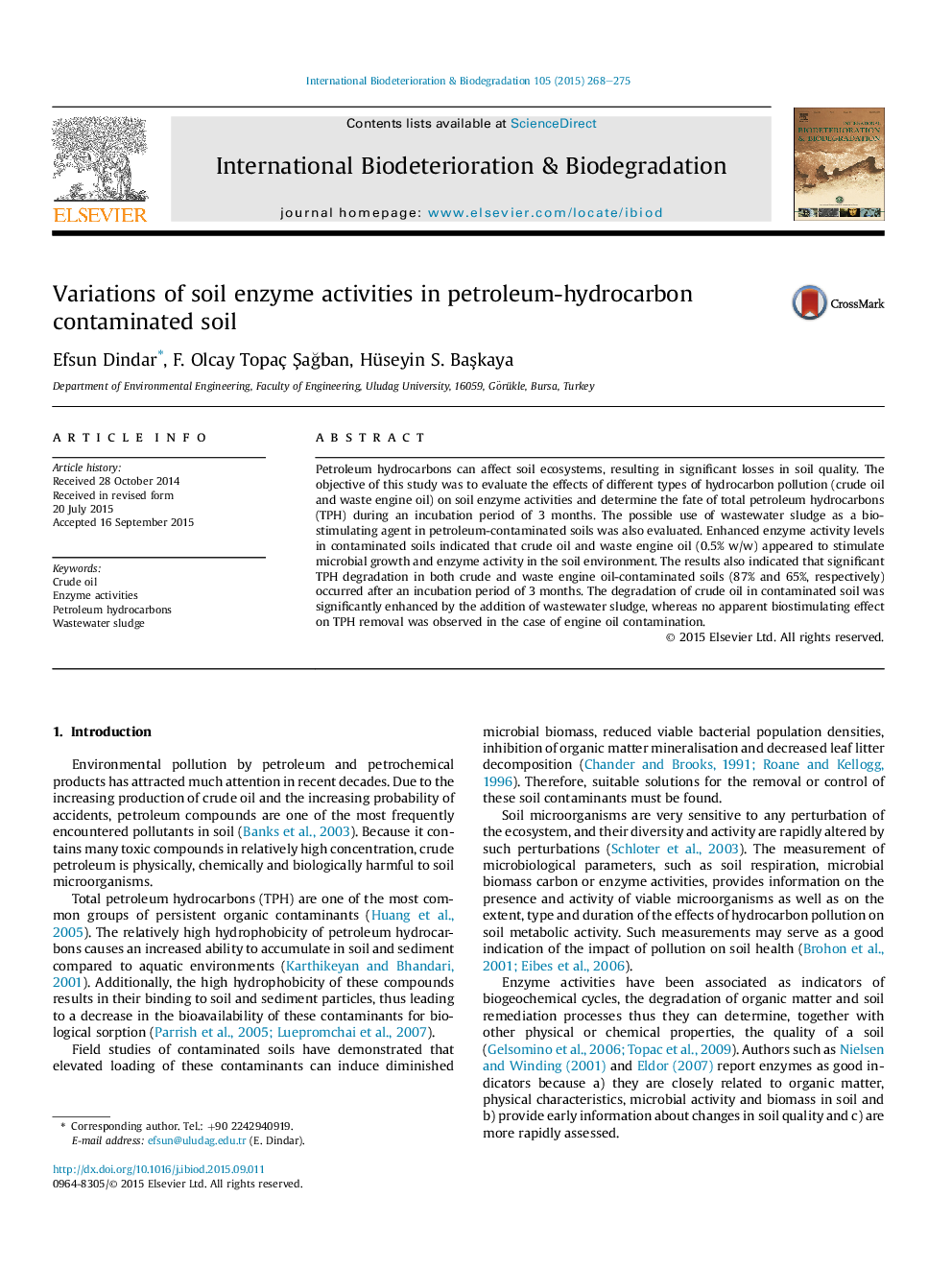| Article ID | Journal | Published Year | Pages | File Type |
|---|---|---|---|---|
| 4364337 | International Biodeterioration & Biodegradation | 2015 | 8 Pages |
•The degradation of waste engine oil was lower than crude oil.•Petroleum hydrocarbons can affect soil enzyme activities.•The degradation of crude oil in soil was enhanced by the addition of wastewater sludge.
Petroleum hydrocarbons can affect soil ecosystems, resulting in significant losses in soil quality. The objective of this study was to evaluate the effects of different types of hydrocarbon pollution (crude oil and waste engine oil) on soil enzyme activities and determine the fate of total petroleum hydrocarbons (TPH) during an incubation period of 3 months. The possible use of wastewater sludge as a biostimulating agent in petroleum-contaminated soils was also evaluated. Enhanced enzyme activity levels in contaminated soils indicated that crude oil and waste engine oil (0.5% w/w) appeared to stimulate microbial growth and enzyme activity in the soil environment. The results also indicated that significant TPH degradation in both crude and waste engine oil-contaminated soils (87% and 65%, respectively) occurred after an incubation period of 3 months. The degradation of crude oil in contaminated soil was significantly enhanced by the addition of wastewater sludge, whereas no apparent biostimulating effect on TPH removal was observed in the case of engine oil contamination.
